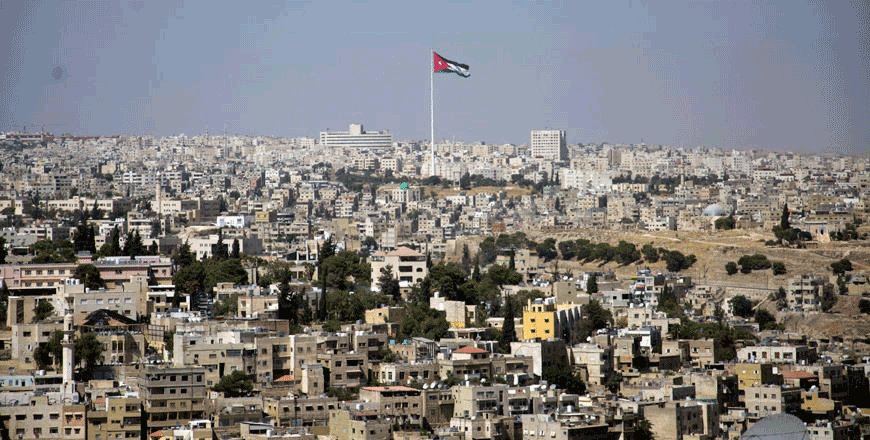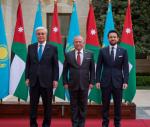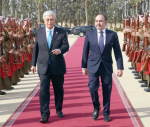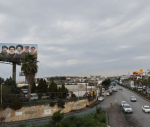You are here
Jordan ranks 5th in region on 2023 Index of Economic Freedom
By Mays Ibrahim Mustafa - Jun 10,2023 - Last updated at Jun 10,2023

Jordan was ranked 93rd globally and 5th out of 14 countries in the Middle East and North Africa region on the 2023 Index of Economic Freedom issued by the Heritage Foundation think tank (JT file photo)
AMMAN — Jordan was ranked 93rd globally and 5th out of 14 countries in the Middle East and North Africa (MENA) region on the 2023 Index of Economic Freedom issued by the Heritage Foundation think tank.
Jordan’s economic freedom score is 58.8, which is below the world average of 59.3 and 1.3 points lower than last year, the report stated.
It showed that Singapore, which scored 83.9, topped this year’s ranking, followed by Switzerland (83.8), Ireland (82) and Taiwan (80.7).
It also outlined a gradual decline in Jordan’s economic freedom over the past few years, as it scored 66.5, 66.0, 64.6 and 60.1 in 2019, 2020, 2021 and 2022, respectively.
According to the report, Jordan’s economy has been disrupted by the conflicts in Iraq and Syria, and hosting over 1.3 million refugees has strained its limited natural resources.
It noted that the Kingdom’s “small” economy is supported by “foreign loans, international aid, and remittances from expatriate workers”.
The report also indicated that economic growth is “constrained by structural weaknesses”, which are dampening economic freedom.
However, it remarked that “progress in upgrading Jordan’s economic infrastructure has been facilitated by the country’s openness to international trade and investment,” despite global economic challenges.
According to the Heritage Foundation’s website, the index measures economic freedom on a scale of 0 to 100 based on 12 “quantitative and qualitative” factors, divided into four categories, including the rule of law, government size, regulatory efficiency and open markets.
Rule of law
The report stated that the rule of law in Jordan is “weak”, with a 54.1 score in property rights and a 42.7 score in judicial effectiveness, both below the world average. The government integrity score stood at 48.3, which is above the world average.
Government size
In terms of fiscal health, the report showed that Jordan scored 3.1, which is significantly lower than the world average.
“The top individual and corporate tax rates are, respectively, 30 per cent and 20 per cent,” it noted, adding that Jordan’s tax burden equals 15.3 per cent of its gross domestic product (GDP).
“Three-year government spending and budget balance averages” equal 31.6 per cent and 7.5 per cent of GDP, respectively, while public debt is 91.9 per cent of GDP, it continued.
Regulatory efficiency
The report showed that Jordan scored 59.8 in business freedom, 57.4 in labour freedom and 83.6 in monetary freedom.
“Recent reforms have made business formation and operation more efficient and dynamic,” it stated.
However, it described the labour market as significantly rigid, marked by slow progress in “reforming bloated public-sector employment”.
“Most price controls have been eliminated, but the government sets prices for some services,” it added.
Open markets
Jordan’s investment freedom score of 70 and financial freedom score of 60 were significantly above the global average, and the country’s trade freedom score stood at 71.4, according to the report.
“The trade-weighted average tariff rate is 9.3 per cent, and nontariff barriers continue to add to the cost of trade,” the report stated.
Related Articles
Jordan has been ranked 39th globally and 4th regionally on the 2014 Index of Economic Freedom, witnessing a decline in its international standing and maintaining the same level regionally compared to last year’s index.
AMMAN — The Kingdom ranked 5th regionally and 82nd globally in the 2022 Social Progress Index (SPI).According to the Social Progress O
AMMAN — Jordan was ranked 4th among 14 countries in the Middle East and North Africa region (MENA) in the 2019 Index of Economic Freed















